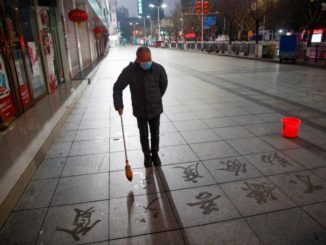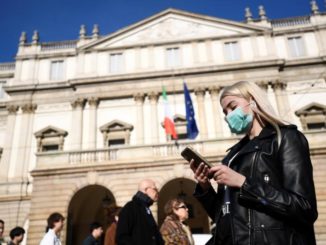
Since COVID-19 took over the headlines and most conversation six weeks ago, the 2020 U.S. Census has fallen off most people’s radar.
Lt. Governor Pamela Evette, a resident of Travelers Rest who attends Prince of Peace Church in Taylors, wants that to change — and soon.
As chairperson of the state’s “Complete Count” committee, she leads a group of state leaders in promoting the importance of the once-a-decade count to their communities and the state as a whole.
“We are currently 41st in the nation in the number of people who have responded to the census, and we need to move way up on that list,” Evette said in a recent interview with The Miscellany. “My goal is to make sure we count everybody living in this state because the census numbers have such a big impact especially on the amount of funding we get from the federal government for important things like education, roads and infrastructure.”
Beginning in early March, households around the nation started receiving letters from the U.S. Census Bureau with instructions on how to complete the survey online. Those letters were followed by paper copies of the census form. Households who did not respond through either format are slated to receive an in-person visit later in the year from a census bureau worker.
People can avoid a knock on the door from a census taker simply by visiting 2020census.gov. There, they can fill out a census form by typing in the unique code they received through the mail, or simply by typing in their address if they don’t have the original form that was sent to them.
Evette noted that for most people, filling out the census will take only about five to 10 minutes of their time.
Her committee is working with the Diocese of Charleston and other organizations around the state to increase the number of responses from communities that have been chronically underrepresented in the census, including African-Americans, Hispanics, the elderly and people living in rural areas.
The COVID-19 pandemic pushed all of the original census deadlines back by three months, so the new goal is to have the nationwide count completed by Oct. 31.
Evette said the count affects the amount of federal funding South Carolina gets for everything from schools and roads to programs that help the elderly and children.
An accurate census count also plays a big role in the state’s political future. Population growth documented by the 2010 count led to South Carolina gaining an additional seat in the U.S. House of Representatives. The seventh congressional district includes the Grand Strand and most of the Pee Dee region and is currently held by Tom Rice of Myrtle Beach.
“It was estimated that we were 20 percent under-counted back in 2010 and we still gained a house seat,” Evette said. “Nobody has speculated yet on whether we’ll gain another seat this time around, but our population is growing around the state.”
Those who aren’t familiar with the way the census works may be skeptical about its importance or leery about who has access to their information. Evette stressed the fact that all information entered on the forms or given to a census worker is completely confidential, can only be used by the Census Bureau, and only becomes available to the public after 72 years.
“There are so many important programs around the state that rely on funding based on information gathered through the census,” Evette said. “I think people have lost sense of the importance of the census over the years. As Catholics, we should remember that when Mary and Joseph went to Bethlehem, they were going to take part in a census. This type of count has been around forever and it really does have an impact.”
For more information and resources — listed in English, Spanish and Vietnamese — and to hear a video message from Bishop Robert E. Guglielmone, visit https://charlestondiocese.org/2020-census



